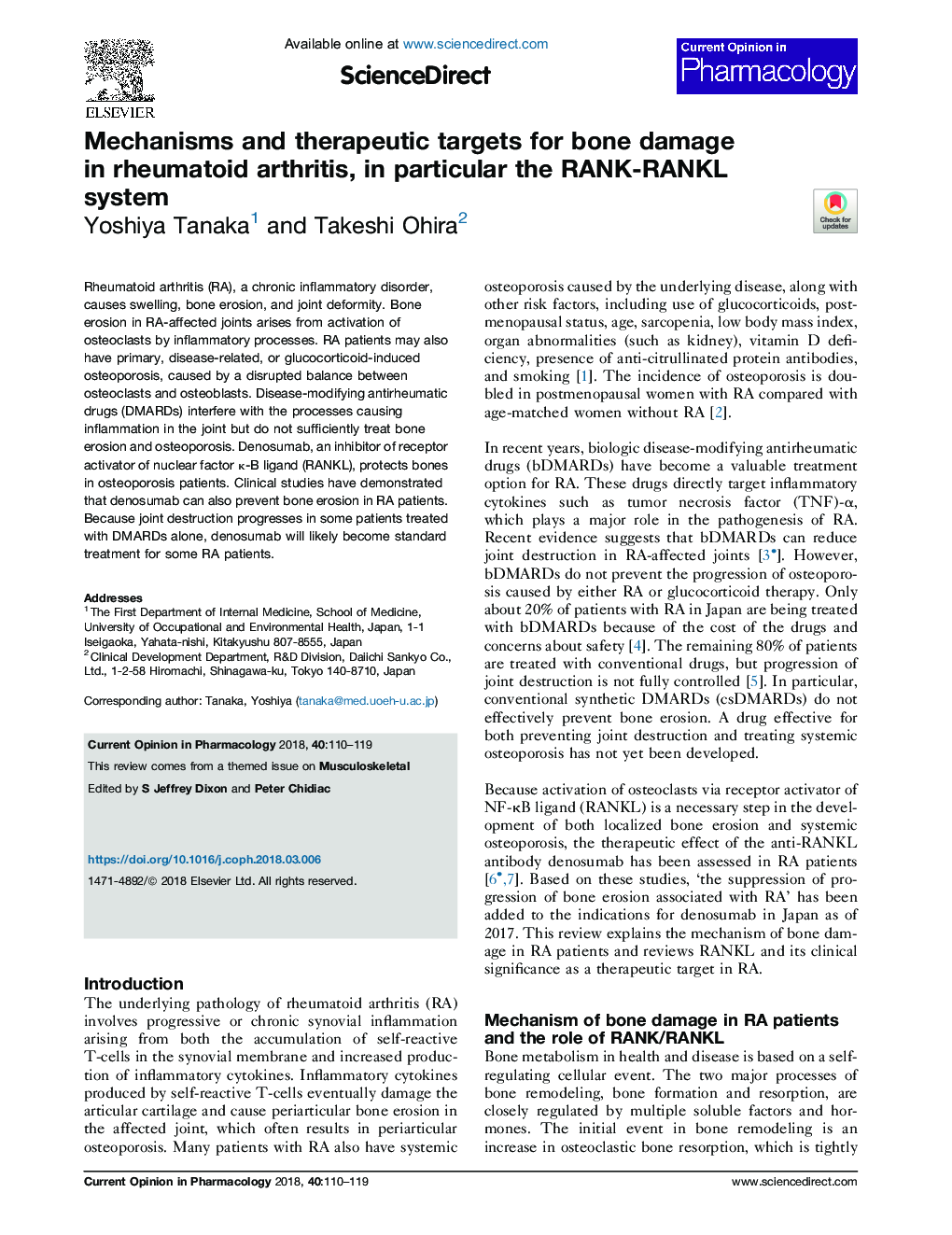| Article ID | Journal | Published Year | Pages | File Type |
|---|---|---|---|---|
| 8528662 | Current Opinion in Pharmacology | 2018 | 10 Pages |
Abstract
Rheumatoid arthritis (RA), a chronic inflammatory disorder, causes swelling, bone erosion, and joint deformity. Bone erosion in RA-affected joints arises from activation of osteoclasts by inflammatory processes. RA patients may also have primary, disease-related, or glucocorticoid-induced osteoporosis, caused by a disrupted balance between osteoclasts and osteoblasts. Disease-modifying antirheumatic drugs (DMARDs) interfere with the processes causing inflammation in the joint but do not sufficiently treat bone erosion and osteoporosis. Denosumab, an inhibitor of receptor activator of nuclear factor κ-B ligand (RANKL), protects bones in osteoporosis patients. Clinical studies have demonstrated that denosumab can also prevent bone erosion in RA patients. Because joint destruction progresses in some patients treated with DMARDs alone, denosumab will likely become standard treatment for some RA patients.
Related Topics
Life Sciences
Neuroscience
Cellular and Molecular Neuroscience
Authors
Yoshiya Tanaka, Takeshi Ohira,
